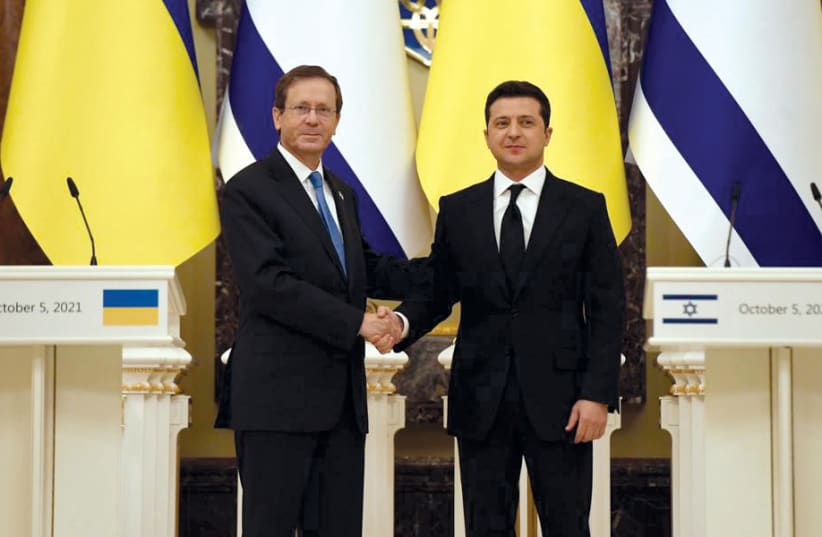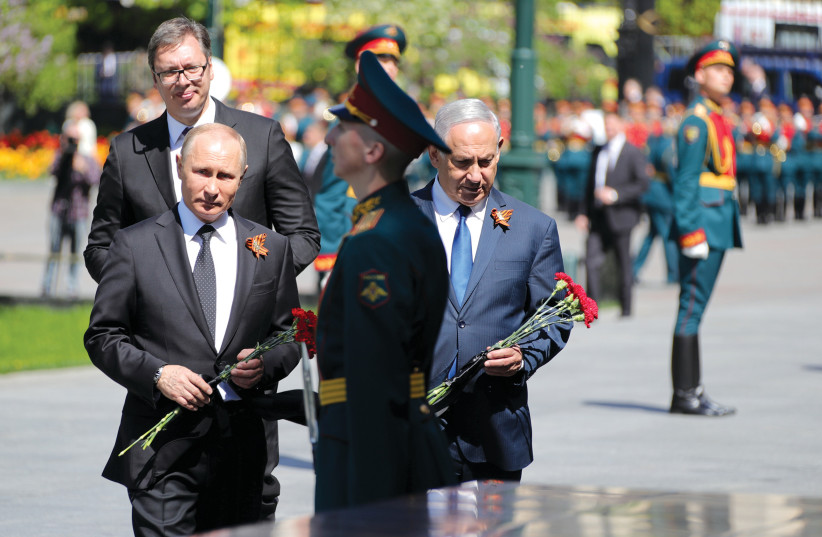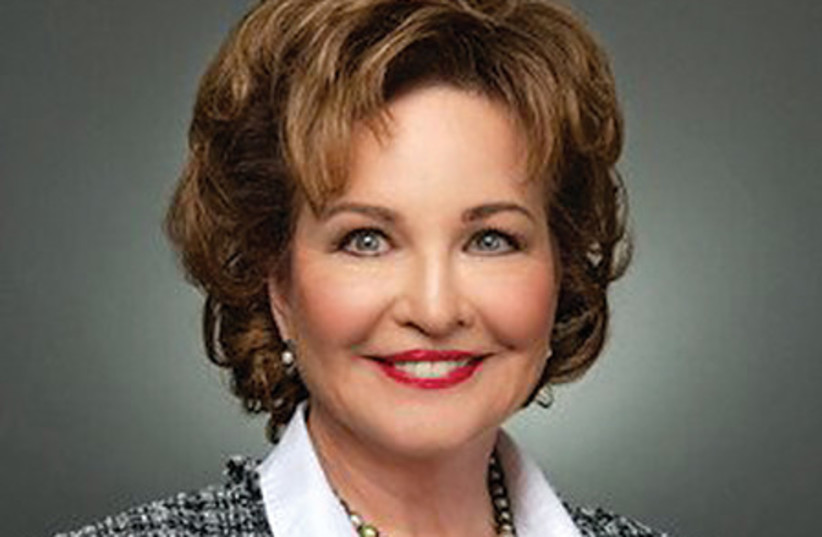“Experts can tell you what was. They cannot tell you what will be.” – David Ben-Gurion
By day two or three of the Russian invasion of Ukraine, I told the person with whom I share my life and my pronouncements, “Remember this. I am saying it first. This is the beginning of the end of Putin.”
Though Henrietta’s testimony would not be admissible in court since I am her husband, in the court of public opinion I assume it would be accepted. In truth, I felt a twinge of sadness when I predicted this.
Yes, I know all the sins Vladimir Putin has committed and the crimes he instigated at home and abroad; but I was able to separate that from a sneaking admiration for how cleverly he aced the West over Syria. He not only outsmarted the weak and lazy US president Barack Obama and his hapless secretary of state, John Kerry, he achieved what the czars had not: a warm-water port for the Russian Navy in the Mediterranean.
Furthermore, I was grateful for his soft spot for Jews.
The air and missile attacks Israel initiates against Iranian and Hezbollah targets in Syria come close to the Russian military presence, and no doubt the Russian air, sea and land commanders in Syria are not happy about Israel’s relative freedom of action. This ability to carry out these attacks is dependent on an advance warning Israel gives the Russian military. It is a unique system proposed by the previous prime minister, Benjamin Netanyahu, and senior officials to Putin. He gave it his blessing and continued the arrangement with the new Israeli leader, Naftali Bennett.
Putin’s regard for the Jewish people was expressed in an extraordinary ceremony at which the Russian president and Netanyahu laid wreaths on the Tomb of the Unknown Soldier in May 2018. That Putin shared this honor with Netanyahu could also be seen as an expression of his special attitude toward Israel.
Others have conjectured why Jews and Israel have an exceptional place in the heart of this man, the most powerful Russian of the day. The fact is such warmth exists. Suffice it to say that the examples above show why I had a glimmer of admiration, even gratitude, toward him. But at the same time, Putin showed himself to be a ruthless backer of Syria’s murderous president, Bashar Assad. Russian aircraft pitilessly attacked civilian areas in Syria. Several murders of dissident journalists and murder attempts of former Russian secret agents in Europe show another and frightening side of the man.
Sending Russian forces into Ukraine has blown up in Putin’s face. When a national leader rules by fear, he cannot trust reports by underlings. Even if he has a parallel set of ears in all departments, Russian intelligence, their land forces and foreign service have proven to be unutterably deficient. They either knowingly said what they thought their leader wanted to hear, or they are gangs of incompetents. I shall hedge that statement by saying that it is probably a sulfurous mixture of both.
Now Western intelligence bodies publicly assert that Putin was misled. Even non-experts knew that. The performance of Russian ground forces is so astonishingly, unbelievably poor, it was obvious from day two or three that incorrect forecasts and information were being fed to Putin.
What is clear also is that little truth is uttered by the Russian propaganda machine. That millions of Russians (even Russian immigrants to Israel) believe that Putin is de-Nazifying a country led by a Jew beggars the wildest imagination.
But now comes the part that will make many readers uncomfortable. In terms of propaganda, Ukrainian spokesmen too often mirror their Slavic cousins and counterparts. Small wonder, after the many years of being taught to lie, obfuscate or exaggerate under Soviet tutelage.
Let us be clear. Ukraine is the victim in this story. Let us recall though that TV reporting in most of the West is an off-shoot of Western entertainment, where the good guys and the bad guys are always all good or all bad. In case you can’t tell which is which, the costume department gives them white hats and black hats.
Yes, Ukraine and Ukrainians wear the white hat. The tragedy of millions of people swept from their homes and running for their lives, of women and children killed, wounded or fleeing in terror is matched by the pictures of men joining the battle, and of women becoming fighters or volunteers to create both deep sympathy and awe.
The Ukrainian case is strong enough and evident enough that it needs no embellishment of cheap propaganda ploys. The Ukrainian propagandists use racist tropes and inflate numbers immensely. One example: to us, Chechen means people from Chechnya. To white Slavs, Russians or Ukrainians, the word embraces a mixture of dark-colored and black-hearted killers, ruthless and wild.
Playing on this, one Ukrainian spokesman announced that the Russians were sending 10,000 Chechen “volunteers” to strengthen the desultory Russian advance. When the Ukrainian foreign minister announced that 40,000 Chechens would be coming, I asked myself how, with all the unutterably foul logistic support the Russian Army has shown, would they move the Chechens? By land, on buses? By rail and bus? That would take days of travel, tons of food and sanitary arrangements.
If they use their largest aircraft, I guess they might pack in 250 fighters and their personal weapons and packs. That would require, if it could even take off with such a load, 40 flights for 10,000 Chechens. For 40,000, that would require 160 flights. If they could pack in even more soldiers per plane, we are talking about over a hundred flights. What is clear is that Russian logistics has failed miserably.
To impose another 40,000 soldiers on it? Really? Does Ukrainian propaganda need such bluffs? Globally, with Ukrainian President Volodymyr Zelensky so successful in addressing world parliaments, and with Western TV and governments clearly pro-victim, does he need to speak of “genocide” to describe the Russian invasion? That is as wrong as Putin’s call for de-Nazifying Volodymyr Zelensky’s government.
One of my informants credits Putin with a great victory: he has succeeded in uniting the diverse Ukrainian population. Historical rifts have a habit of living on even when ostensibly, reigns change. In Ukraine there exist diverse racial, linguistic and religious elements: Ukrainian Orthodox and Ukrainian-speaking Greek Catholics often called Ruthenians, Russians, Tatars, Romanians, Poles, Hungarians, Bulgarians and Jews. In the face of the external enemy, my source hears from his phone contacts that national unity (naturally) has been strengthened beyond ken. I wonder how many Russians that includes?
I ask myself: and then what? Will Ukraine, after peace is restored, follow the course of its neighboring Eastern European countries? A reminder: if you think the ugly past is long forgotten, take a look at Poland. Today Poland is seen as humanitarian as it offers facilities and care for the fleeing Ukrainians. But do not forget that Poland has a neo-fascist antisemitic government. Romanians speak openly and without hope of national corruption. Hungary is antisemitic and undemocratic.
Will Ukraine break that mold? History shows that corruption and antisemitism are endemic in Eastern Europe. Yes, experts know what was, but not what will be. But “what was” in Eastern Europe is “what is.” I am afraid for what will be, in spite of Israel’s remarkable efforts to help the refugees by both opening its doors and supplying health and other volunteer services.
Ecclesiastes tells us that what was is what will be. I hope in this case he is wrong. ■
The writer dedicates this column to the memory of Julia Koschitzky, who died in Canada on March 21, whose elegant leadership enriched the Toronto and Canadian Jewish communities. On the global scene, she served as chair of the World Keren Hayesod-UIA Board of Trustees, and as an influential member of the Board of Governors of the Jewish Agency.


